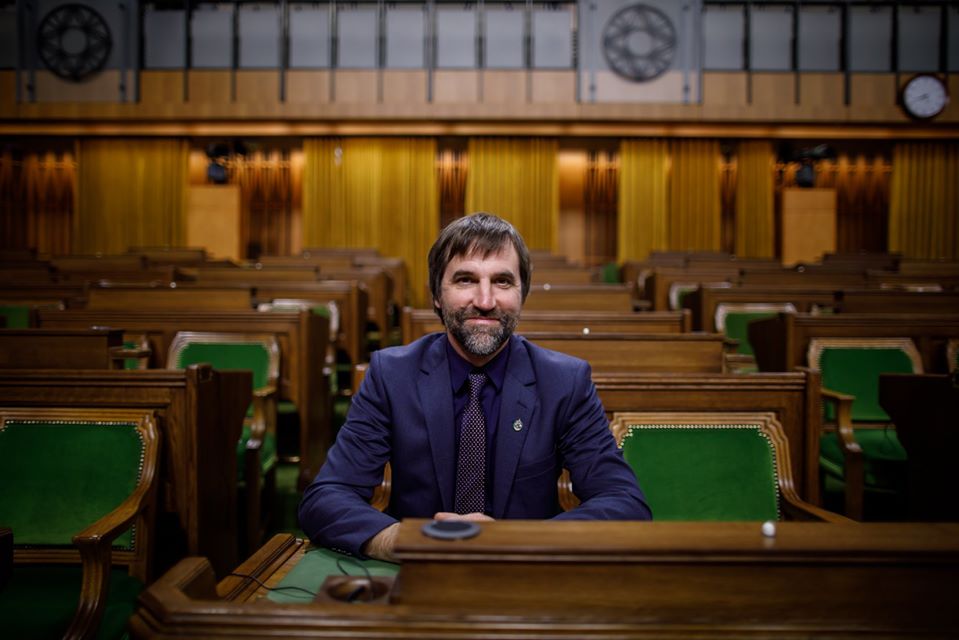
Culture and heritage: the government continues to support organizations
GATINEAU, QC, June 18, 2020 /CNW/ – As the culture and heritage industry continues to manage the impacts of the COVID-19 pandemic, the Government of Canada must continue its efforts to support affected organizations that still face significant challenges and financial pressures.
That is why the Honourable Steven Guilbeault, Minister of Canadian Heritage, today announced new measures to assist the museum sector as well as the first component of Phase 2 of the COVID-19 Emergency Support Fund for Cultural, Heritage and Sport Organizations.
$25.7 million in new funding for national museums and the National Battlefields Commission
Canada’s six national museums (Crown corporations)—the Canadian Museum for Human Rights, the Canadian Museum of History, the Canadian Museum of Immigration at Pier 21, the Canadian Museum of Nature, the National Gallery of Canada, the Canada Science and Technology Museum, and the National Battlefields Commission (a government agency)—are important cultural and historical institutions. They play an essential role in preserving our heritage and educating Canadians, and are drivers of innovation.
The Government of Canada is therefore announcing an emergency investment of $25.7 million to help these organizations maintain essential services and be ready to reopen their doors to the public once precautionary measures are lifted.
Because of the COVID-19 pandemic, the six national museums and the National Battlefields Commission closed their doors on March 14, 2020, to protect the health and safety of their staff, visitors, and all Canadians.
This major investment will support these national institutions, which are essential to the preservation and presentation of our artistic, cultural and historical treasures. It will also protect jobs on which many Canadians depend.
COVID-19 Emergency Support Fund for Cultural, Heritage and Sport Organizations: Implementation of Phase 2
Minister Guilbeault also confirmed the implementation of the first component of Phase 2 of the COVID-19 Emergency Support Fund for Cultural, Heritage and Sport Organizations, launched in May 2020. This $500-million fund is being used to maintain jobs and support the business continuity of organizations impacted by the crisis.
To expedite the funding distribution, the government is implementing the Fund in two phases. Phase 1, which is currently underway, included the timely provision of funding to existing recipients of Canadian Heritage assistance.
The government is now ready to launch the first component of Phase 2 of the COVID-19 Emergency Fund for Heritage Organizations. This component provides $53 million in support to organizations with heritage collections through the emergency component of the Museums Assistance Program. Eligible not-for-profit organizations such as museums, archives, historic sites, Indigenous organizations, official-language minority communities, or municipal and university museums with separate budgets, will now be able to apply for funding.
More information about the next component of Phase 2 will be announced shortly.
Assistance from the Emergency Support Fund is targeted, and complements general business support measures such as wage subsidies or small business loans. The measure is not intended to compensate for all income losses or revenue shortfalls; rather, it is emergency assistance to ensure the continuity of organizations’ operations and help them to meet their immediate and short-term financial commitments.
Launch of an online portal to apply for financial assistance
In addition to the streamlined processes put in place to facilitate applications from organizations in need, a funding portal is now available to further accelerate the processing of applications. Heritage organizations eligible for the Museums Assistance Program can now apply online through this new portal.
Quotes
“We appreciate the incredible challenges faced by all cultural and heritage organizations in these difficult and uncertain times. We’ve set ourselves the goal of helping as many organizations as possible. That is why our government has taken these measures to support these vital sectors of our economy and help them weather the COVID-19 pandemic. We want to make sure they can survive this crisis and bounce back when it is behind us.”
—The Honourable Steven Guilbeault, Minister of Canadian Heritage
Quick Facts
The Emergency Support Fund for Cultural, Heritage and Sport Organizations builds on a number of recently announced actions by the Government of Canada to support these sectors:
- Funding to help Canadians become more resilient and to think critically about COVID-19 pandemic disinformation.
- Waiving of regulatory charges for broadcasters by the CRTC, providing more than $30 million of immediate financial relief for the broadcasting industry.
- Accelerated processing of applications for annual funding from the Canada Book Fund and Canada Periodical Fund.
- A new Independent Advisory Board on Eligibility for Journalism Tax Measures, and draft legislative proposals that would make adjustments to these tax measures for greater clarity and alignment with their initial objectives.
- Commitment to continue working with the Canadian Olympic and Paralympic committees and all sport organizations as they support Canadian athletes in their preparation for the Tokyo Olympic and Paralympic Games.
- Plans for the Canada Council for the Arts to provide approximately $60 million in advance funding, the equivalent of 35% of annual grants held by over 1,100 core funded organizations.
The Museums Assistance Program supports heritage institutions and workers in the preservation and presentation of heritage collections. The program fosters the preservation of Indigenous culture and facilitates access to heritage collections for all Canadians. It also promotes professional knowledge, skills and practices related to key museum functions.
Canada’s national museums are independent Crown corporations that are responsible for their day-to-day operations, including making decisions related to their programming and exhibition content, and managing their human and financial resources.